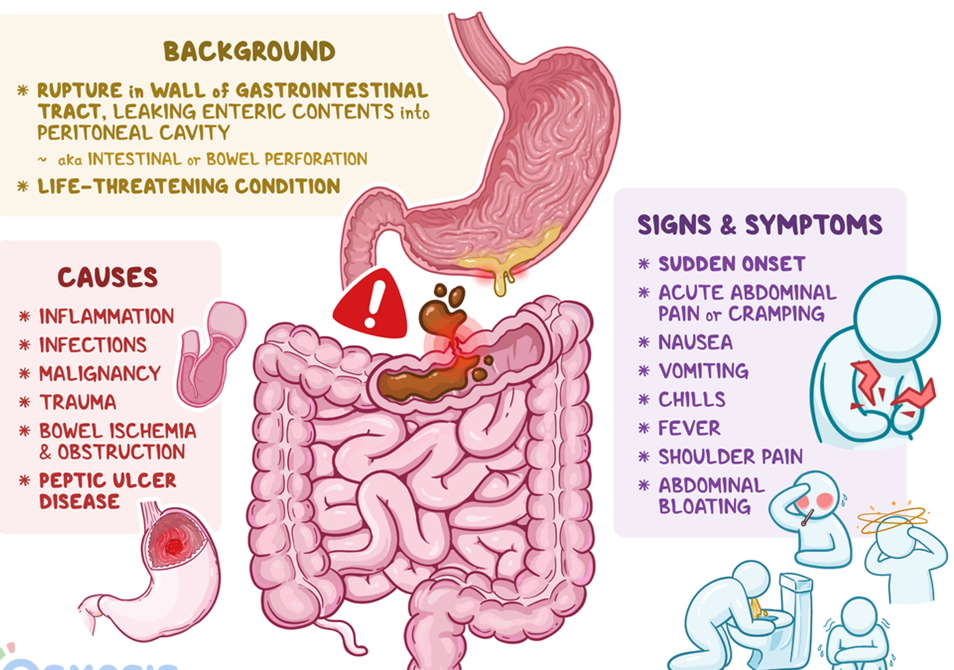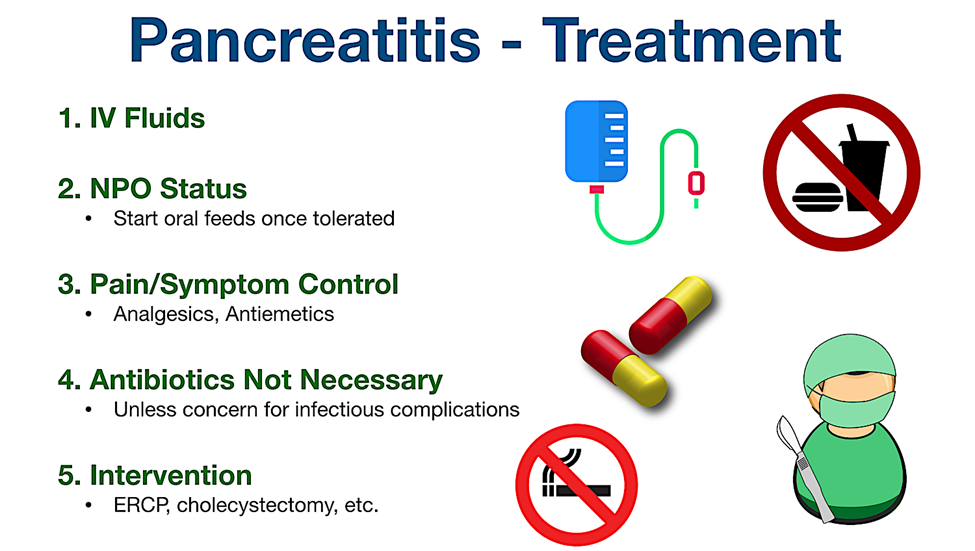A nurse is caring for a client diagnosed with peptic ulcer disease. The nurse should monitor the client for which of the following findings as an indication of gastrointestinal perforation?
Bradycardia
Hyperactive bowel sounds
Increased blood pressure
Sudden abdominal pain
The Correct Answer is D
A. Bradycardia is not typically associated with gastrointestinal perforation. Instead, tachycardia may be observed due to the body's response to a potential emergency or shock.
B. Hyperactive bowel sounds are not typically associated with gastrointestinal perforation. In fact, bowel sounds may decrease or become absent in severe cases of peritonitis or abdominal emergencies.
C. Increased blood pressure is not typically associated with gastrointestinal perforation. Hypotension may be observed due to hypovolemia resulting from fluid leakage into the peritoneal cavity.
D. Sudden abdominal pain is a key clinical manifestation of gastrointestinal perforation. The perforation of the stomach or intestines allows the contents to leak into the abdominal cavity, leading to peritonitis. Sudden and severe abdominal pain is a hallmark symptom, often described as sharp, stabbing, and constant.

Nursing Test Bank
Naxlex Comprehensive Predictor Exams
Related Questions
Correct Answer is D
Explanation
A. Provide oral hygiene.
Providing oral hygiene is important for the client's comfort and overall well-being. However, in the context of acute pancreatitis, the immediate priority is to address the gastrointestinal symptoms and prevent further pancreatic stimulation.
B. Assist the client to a side-lying position.
Assisting the client to a side-lying position can be beneficial for comfort and may help prevent complications such as aspiration. However, it is not the immediate priority after treating the pain. Withholding oral fluids and food takes precedence in the initial management of acute pancreatitis.
C. Auscultate the client's lungs.
Auscultating the client's lungs is a routine nursing assessment and is important for respiratory monitoring. However, in the context of acute pancreatitis, the primary focus is on addressing gastrointestinal symptoms, and respiratory assessment becomes more critical if respiratory distress is suspected.
D. Withhold oral fluids and food.
Withholding oral fluids and food is the priority intervention after treating the pain in acute pancreatitis. This is done to reduce pancreatic stimulation, allowing the pancreas to rest and recover. NPO (nothing by mouth) status is often initiated in the early management of acute pancreatitis.

Correct Answer is C
Explanation
A. Dyspepsia:
Dyspepsia refers to discomfort or pain in the upper abdomen, often described as indigestion. It is a common symptom of peptic ulcer disease but is not as urgent as the manifestation described in option C.
B. Epigastric discomfort:
Epigastric discomfort is a common symptom of peptic ulcer disease, but the priority is to identify more severe complications, such as bleeding.
C. Hematemesis:
This is the correct answer. Hematemesis refers to the vomiting of blood, which is a serious and potentially life-threatening complication of peptic ulcer disease. It indicates active bleeding in the upper gastrointestinal tract and requires prompt medical attention.
D. Epigastric pain:
Epigastric pain is similar to epigastric discomfort and is a common symptom of peptic ulcer disease. However, the priority in the given options is to identify the more severe complication of hematemesis.
Whether you are a student looking to ace your exams or a practicing nurse seeking to enhance your expertise , our nursing education contents will empower you with the confidence and competence to make a difference in the lives of patients and become a respected leader in the healthcare field.
Visit Naxlex, invest in your future and unlock endless possibilities with our unparalleled nursing education contents today
Report Wrong Answer on the Current Question
Do you disagree with the answer? If yes, what is your expected answer? Explain.
Kindly be descriptive with the issue you are facing.
